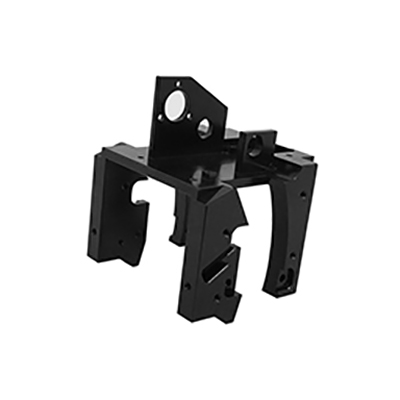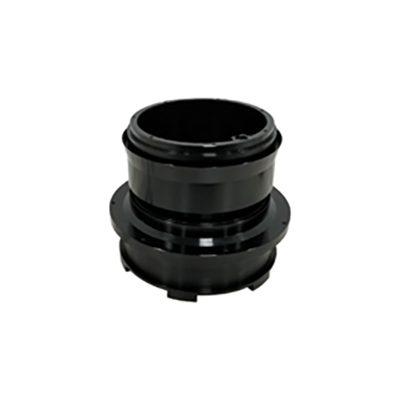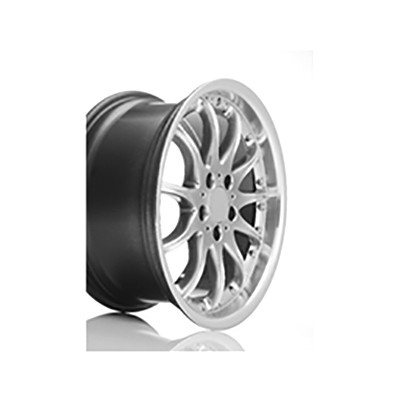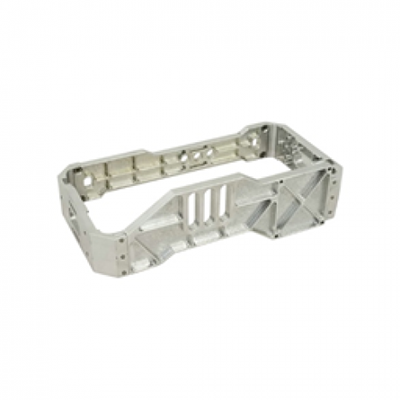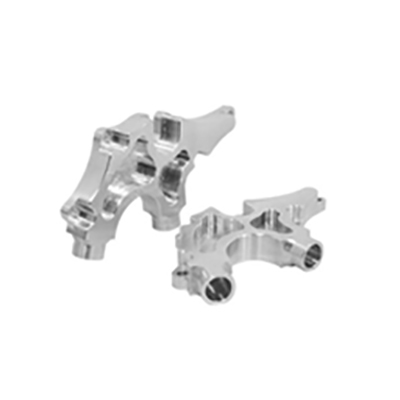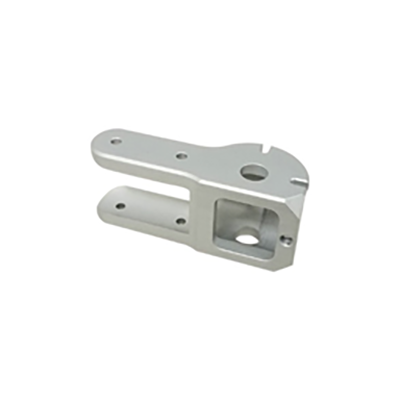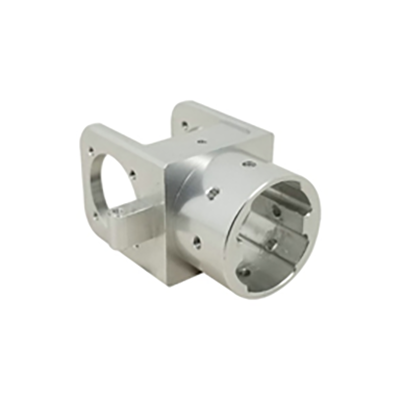PEEK
Custom PEEK Machining Service
Order custom CNC-machined aluminum parts with quick turnaround times and cost-effective pricing, offering a variety of aluminum materials and finishes for both prototypes and production runs.
- ISO 9001 & ISO13485 Certified Factory
- Advanced Equipment & Cost-Effective Price
- 10+ Years of Aluminum Machining Service
- Tight Tolerance of 0.001 mm
- Provide Multiple Aluminum Materials Options
- 24/7 Engineering Support

Our PEEK Machining Capabilities
Aluminum is a highly adaptable and robust material that is commonly used in CNC machining. It possesses exceptional corrosion resistance, making it a popular choice. Additionally, aluminum exhibits outstanding machinability, welding, and electroplating qualities. With its impressive strength-to-weight ratio and excellent temperature resistance, it is widely utilized in various industries such as automotive, aerospace, defense, transportation, building, packaging, electronics, and consumer goods. After machining, aluminum has a low risk of deformation or flaws and is easy to color and polish.
| Price | $ |
| Lead Time | <7 days |
| Wall Thickness | 0.75 mm |
| Tolerances | ±0.125mm(+0.005″) |
| Max Part Size | 200x80x100cm |
| Available Aluminum at NOBLE | Aluminum6061、2024、5052、5083、6061-T6、6063、6082、7075、7075-T6.ADC12(A380) |

Characteristics of PEEK Machining Materials
Aluminun is the most common materials for parts machining and manufacturing,below is some common information about aluminum.
| Features | Info |
| Subtypes | 6061-T6, 7075-T6, 7050, 2024, 5052, 6063, etc |
| Process | CNC machining, sheet metal fabricatio, die casting |
| Tolerance | With drawing: as low as +/- 0.005 mm No drawing: ISO 2768 medium |
| Applications | Light & economic, used from prototyping to production |
| Finishing Options | Alodine, Anodizing Types 2, 3, 3 + PTFE, ENP, Media Blasting, Nickel Plating, Powder Coating, Tumble Polishing. |
Pros and Cons of PEEK for CNC Machining
Aluminum is well suited for CNC machining due to its light weight, machinability, and versatility, making it suitable for a wide range of industries and favored by CNC machining manufacturers, however, it faces some challenges, such as lower strength compared to steel, susceptibility to wear, and potential issues related to thermal expansion and corrosion. Choosing the right aluminum machining method can mitigate these disadvantages for most applications.
Lightweight
Aluminum alloys are significantly lighter than other metals like steel, making them ideal for applications where weight reduction is crucial, such as in aerospace, automotive, and military industries.
Excellent Machinability
Aluminum alloys are easier to machine compared to many other metals, due to their relatively low hardness and good chip formation. This allows for faster cutting speeds, longer tool life, and the ability to achieve high-precision tolerances.
Corrosion Resistance
Aluminum alloys naturally form an oxide layer that provides excellent protection against corrosion, making them ideal for outdoor and marine applications where exposure to moisture and harsh environments is common.
Good Strength-to-Weight Ratio
Despite being lightweight, many aluminum alloys, like 6061 and 7075, offer a favorable strength-to-weight ratio, making them suitable for both structural and functional parts that need strength without adding excessive weight.
Versatility
Aluminum alloys come in a variety of grades and compositions, each offering specific properties (e.g., better strength, higher corrosion resistance, improved weldability), making them versatile for a wide range of applications, from automotive and aerospace to consumer electronics and architectural materials.
Recyclability
Aluminum is 100% recyclable without any loss of properties, which makes it an environmentally friendly material choice and contributes to cost savings in the long term.
Conductivity
Aluminum is an excellent conductor of heat and electricity. This makes it ideal for many applications, similar to copper and other similar conductive materials.
High-Temperature Resistance
Unlike some materials, aluminum maintains its properties at low temperatures, offering more flexibility in the machining process.

Lower Strength Compared to Steel
While aluminum alloys have good strength, they are generally not as strong as steel, limiting their use in high-stress applications unless alloyed with stronger elements (e.g., 7075 aluminum for aerospace).
Softness and Scratch Sensitivity
Aluminum is softer than many other metals, making it more prone to scratching, denting, and wear, especially in high-friction or abrasive environments. This requires careful handling during machining and post-processing.
Tool Wear
Although aluminum alloys are easier to machine than harder metals, they can still cause tool wear, particularly when machining high-strength aluminum alloys or when cutting at high speeds. This can lead to more frequent tool replacements or maintenance.
Thermal Expansion
Aluminum has a relatively high coefficient of thermal expansion, meaning it expands and contracts significantly with changes in temperature. This can lead to dimensional inaccuracies if the material is not properly cooled or handled during machining, especially in tight-tolerance applications.
Relatively Higher Cos:
While aluminum is generally less expensive than titanium or high-strength steels, it can still be more costly than some other materials, especially when using high-grade or specialized alloys (e.g., aerospace grades like 7075).
Potential for Galvanic Corrosion
When aluminum alloys are in contact with certain metals (e.g., copper, steel) in the presence of an electrolyte (such as saltwater), they may experience galvanic corrosion, which can compromise the integrity of the part unless protective coatings or specific alloys are used.

Types of PEEK Machining Materials
NONLE has dealed with warioud aluminum subtypes for parts machining:

Aluminum 6061-T6
6061 aluminum is a versatile aluminum alloy known for its excellent machinability, weldability and corrosion resistance, and is widely used in aerospace, automotive, marine, construction, bicycle manufacturing, industrial machinery and sporting goods.
Yield Strength(MPa): 276
Elongation at Break(%): 17
Hardness(Brinell): 95
Density(G/m³): 2.7
Maximum Temp: 1080° F

Aluminum 7075-T6
Aluminum 7075-T6 is widely used in high-strength applications such as aerospace, military, automotive, and sporting goods, including aircraft structures, marine components, and performance-oriented parts, due to its superior strength-to-weight ratio and resistance to stress corrosion.
Yield Strength(MPa): 503
Elongation at Break(%): 11
Hardness(Brinell): 150
Density(G/m³): 2.8
Maximum Temp: 380° F

Aluminum 5052
This alloy is known for its excellent corrosion resistance, formability and weldability. It is widely used in the marine, automotive, construction and chemical industries. Its excellent formability makes it an ideal choice for CNC machining projects.
Yield Strength(MPa): 193
Elongation at Break(%): 12
Hardness(Brinell): 60
Density(G/m³): 2.68
Maximum Temp: 300° F

Aluminum 6063
6063 aluminum is ideal for CNC machining of architectural applications, window frames, door frames, furniture, and structural parts for irrigation pipes due to its excellent surface finish, good corrosion resistance, and its excellent ease of machining.
Yield Strength(MPa): 214
Elongation at Break(%): 12
Hardness(Brinell): 73
Density(G/m³): 2.7
Maximum Temp: 212° F

Aluminum 6061
6061 aluminum is widely used in aerospace, automotive, marine, construction and industrial applications due to its excellent strength, corrosion resistance and machinability. It is ideal for custom CNC machining of aircraft structures, vehicle components, marine equipment.
Yield Strength(MPa): 276
Elongation at Break(%): 17
Hardness(Brinell): 95
Density(G/m³): 2.7
Maximum Temp: 300° F

Aluminum 2024
Aluminum 2024 is widely used in aerospace, military and high-stress structural applications due to its high strength, fatigue resistance and ability to withstand extreme conditions. It is ideal for CNC machining of aircraft fuselages, wings and military vehicles.
Yield Strength(MPa): 325
Elongation at Break(%): 20
Hardness(Brinell): 120
Density(G/m³): 2.78
Maximum Temp: 935° F

Aluminum 5083
Aluminum 5083 is widely used in marine, transportation and industrial applications due to its excellent corrosion resistance (especially in saltwater environments) and high strength. It is ideal for shipbuilding, pressure vessels and CNC machining of car body parts.
Yield Strength(MPa): 275
Elongation at Break(%): 12
Hardness(Brinell): 75
Density(G/m³): 2.66
Maximum Temp: 775 °F

Aluminum 6082
Aluminum 6082 is widely used in structural applications such as bridges, cranes and industrial machinery due to its excellent strength, corrosion resistance and machinability. It is ideal for CNC machining of transportation equipment and connecting equipment parts.
Yield Strength(MPa): 260
Elongation at Break(%): 11
Hardness(Brinell): 95
Density(G/m³): 2.7
Maximum Temp: 330 °F

Aluminum 7075
7075 aluminum is widely used in high-performance applications, including aerospace, military, and sporting goods, due to its outstanding strength, light weight, and resistance to stress and fatigue. It is ideal for CNC machining of aircraft structures, defense equipment, and bicycle frame parts.
Yield Strength(MPa): 503
Elongation at Break(%): 11
Hardness(Brinell): 150
Density(G/m³): 2.81
Maximum Temp: 775 °F

Aluminum ADC12 (A380)
Aluminum ADC12 (A380) is widely used in the automotive, aerospace and manufacturing industries for its excellent fluidity, castability and corrosion resistance to produce die-cast components and is ideal for CNC machining of engine components, transmission housings, automotive wheels and industrial machinery parts.
Yield Strength(MPa): 160
Elongation at Break(%): 3.5
Hardness(Brinell): 80
Density(G/m³): 2.74
Maximum Temp: 572 °F
Surface Finishing Options for PEEK Machining
NOBLE has more than ten years of experience in surface treatment and excellent engineers, who are proficient in surface treatment of plastics, metals, and composite materials, and can turn your dream prototype or parts into reality.

As Machined
Coming out of the machine after machining, our parts are cleaned of any sharp edges and burrs while retaining marks. Without any added material, the part had a surface roughness of 3.2 μm (126 μin).

Band Blasting
Band blasting cleans the surface of any impurities and peels coating through the propelling of blast media streams over the parts.

Anodizing
To increase surface hardness and dissipate heat, we use anodizing techniques to enhance the look of parts and blend well for painting and priming.

Electroplating
Electroplating reduces metal cations in the electrolyte solution, producing a metallic coating on a metal surface. This process can be used for purposes of corrosion and wear resistance, as well as for decorative purposes.

Polishing
Working on metal and hard plastics, our polishing uses highly efficient machinery to get our parts between Ra 0.8~Ra0.1 for a cleaner surface.

Powder coating
We apply a thin layer of protective polymer with the corona discharge phenomenon to give our part a lasting finish that protects from impacts and prevents wearing down.

Brushing
Our brushing technique uses abrasive belts over the material to create diverse patterns that match the parts’ structure and color.

Painting
Painting involves Spray droplets can be dispersed uniformly or in fine amounts to cover a wide surface area and bring out greater color to the part.

Black Anodized
Adding layers to metallic surfaces like steel, our black anodized technique improves appearance while maintaining durability.

Alodine
We use chromate conversion coating or alodine to protect aluminum and other materials from corrosive elements, usually done before priming and painting parts.

Laser Carving
Helpful in brand recognition or parts organization, we use laser carving that applies various printing methods during full-scale production to quickly embed barcodes, lettering and logos on the parts.
Custom PEEK Machining Parts Display
Check out our over ten years of custom aluminum machining, including precision aluminum prototypes and parts from our valued customers.
Applications of PEEK CNC Machining
Aluminum CNC machining is widely used in industries such as aerospace, automotive, electronics, and medical devices for producing lightweight, high-precision components like aircraft parts, engine blocks, enclosures, and surgical instruments.

Automotive Parts
Aluminum CNC machining is widely used in the automotive industry, where it improves vehicle performance, efficiency, and design flexibility due to aluminum’s lightweight, corrosion-resistant, and strong properties. It reduces vehicle weight, improves fuel efficiency and performance, provides strong, lightweight structural elements, and enhances safety and handling.

Aerospace Parts
The aerospace sector uses aluminum for many aircraft fittings, brackets, housings, and components that require both strength and lightweight to support heavy loads.

Medical Devices
Aluminum CNC machining is used in the medical industry to produce lightweight, precise components such as surgical instruments, medical device housings, implantable devices, and diagnostic equipment parts, offering excellent strength, corrosion resistance, and biocompatibility.

Robotics Parts
Aluminum CNC machining is critical in the robotics industry due to its precision and material properties. It supports the development of efficient, reliable, and innovative robotic systems, providing robots with lightweight, strong frames and bodies, making precision joints, gears, and connectors, allowing robots to dissipate heat efficiently, and meeting the needs of specific robotic functions.

Industrial Equipment
Aluminum CNC machining in the industrial equipment industry enables the production of precise, lightweight, and durable components for enhanced machinery performance and customization.

New Energy
Aluminum CNC machining in the new energy industry facilitates the creation of lightweight, precise components essential for efficient energy solutions and renewable technologies.
If you are looking for a rapid prototyping manufacturer or a CNC machine shop to fabricate small, medium-volume, or mass-production products, NOBLE is an ideal choice.Our well-trained and experienced staff manufactures parts in line with drawings on modern CNC machines, with the highest accuracy and processing quality in all sizes.In addition, we provide professional design considerations for your CNC machining projects.
Want to get the most professional and fastest service for your CNC machining project? Upload your CAD files now and obtain a quote!

